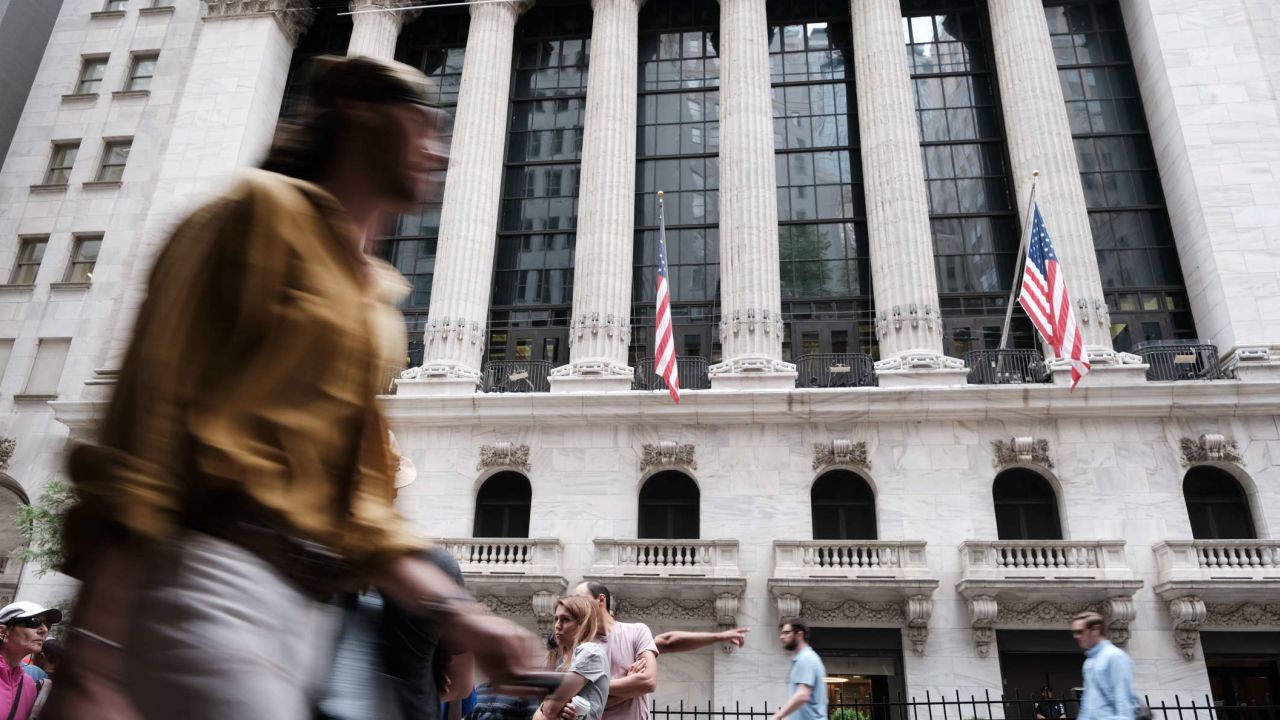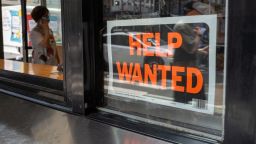Wages are now finally beating inflation, according to the latest quarterly data on wage growth. But, with a widely expected recession still looming, that might not last. That is, unless you work in a certain industry.
In the first three months of the year, median weekly earnings for full-time and salaried workers were 6.1% higher compared to the same period a year ago, outpacing the 5.8% increase in consumer prices during that period. And Friday’s jobs report showed that workers’ paychecks grew in April by 16 cents, or 0.5%, to $33.36 an hour on average. That was the biggest monthly increase since March 2022, though wage growth had gradually slowed since then.
Workers who switched jobs are still raking in higher wages than those who choose to stay; and employees in industries struggling to hire, such as leisure and hospitality, are also enjoying fatter paychecks, economists said.
“The folks who left one company and went to another are the ones who are still benefiting from wage growth,” said Morgan Llewellyn, chief data scientist at Jobvite.
Part of the continued strength in wage growth largely has to do with employers’ difficulty in hiring, which varies by industry. A recent survey from the National Federation of Independent Business showed that 53% of small businesses reported “few or no qualified applicants for the positions they were trying to fill.” The report said that vacancies in construction, transportation and wholesale remain the hardest to fill.
“This is still an incredibly tight labor market and employers are still having to beat out competition to secure talent,” said Julia Pollak, chief economist at ZipRecruiter. “And even if employers want to get back to normal and control wage growth, they just don’t have much choice but to raise wages to increase recruitment and retention.”
Constrained labor supply might be a reason why employers are still having such a hard time hiring. Labor force participation, or the share of workers employed or seeking a job, stood at 62.6%, below 63.3% in February 2020, ahead of the pandemic. Participation among “prime age” workers, those between the ages of 25 and 54, has already made a full recovery, but it remains below pre-pandemic levels for workers in their early twenties and those older than 54.
It could also be due to workers simply wanting other kinds of jobs, such as ones that pay more or allow for remote work, Pollak said.
“Wage growth has still been higher for job changers than job stayers and that suggests that there’s still a shortage of labor for some companies,” said Dawn Fay, operational president at staffing firm Robert Half.
Fay said that workers such as accountants, systems analysts and customer service professionals remain in demand and are still enjoying robust compensation packages, even from a year ago. She said she expects demand for those workers to persist even during an economic downturn because of their “core skill sets.”
The recession question
Many economists, including those at the Federal Reserve, expect the US economy to tilt into a recession later in the year. A recession is defined as a broad economic downturn that typically includes a weak jobs market. That means wage and payroll growth would slow considerably, but not for every worker.
“If you think about a recession caused by rising interest rates, it won’t stop you from aging or needing a knee replacement, so there won’t be much of an impact on demand for health care,” said Llewellyn. “But it would have an effect on transportation, manufacturing, and other industries that are interest-rate sensitive.”
Workers in the leisure and hospitality sector, which includes bars, restaurants and hotels, have also enjoyed some of the strongest wage gains. That’s because pent-up demand after pandemic lockdowns means consumers are still traveling at a strong clip. It’s also a sector that has been slow to bounce back after losing millions of workers in the first months of the pandemic — and now, many of those workers are reluctant to return to what they see as a low-pay, unstable work environment.
If the economy heads into a recession and consumers cut back on discretionary spending like travel and dining out, that could potentially undo those wage gains in leisure and hospitality, Llewellyn said.
Demand for health care might even become greater because of the country’s aging population, he said. Health care firms added 40,000 jobs in April and averaged a gain of about 47,000 jobs a month in the prior six months.
Workers will also be less likely to switch jobs if there is a recession, thus weakening wage growth figures across the board, Llewellyn added.
Still, the US labor market is still holding up, even as other data points to a slowing economy. Employers added 253,000 jobs in April, trouncing economists’ expectation, and the unemployment rate fell to 3.4%, matching the lowest rate since 1969.
At the same time, US economic growth slowed to an annual rate of 1.1% in the January-through-March period, a weaker rate than the prior two quarters; and a key measure of business investment, orders for nondefense capital goods excluding aircraft, fell in three of the four months through March. The latest surveys released by the Institute for Supply Management showed that economic activity in the US manufacturing sector contracted for the sixth consecutive month in April.









